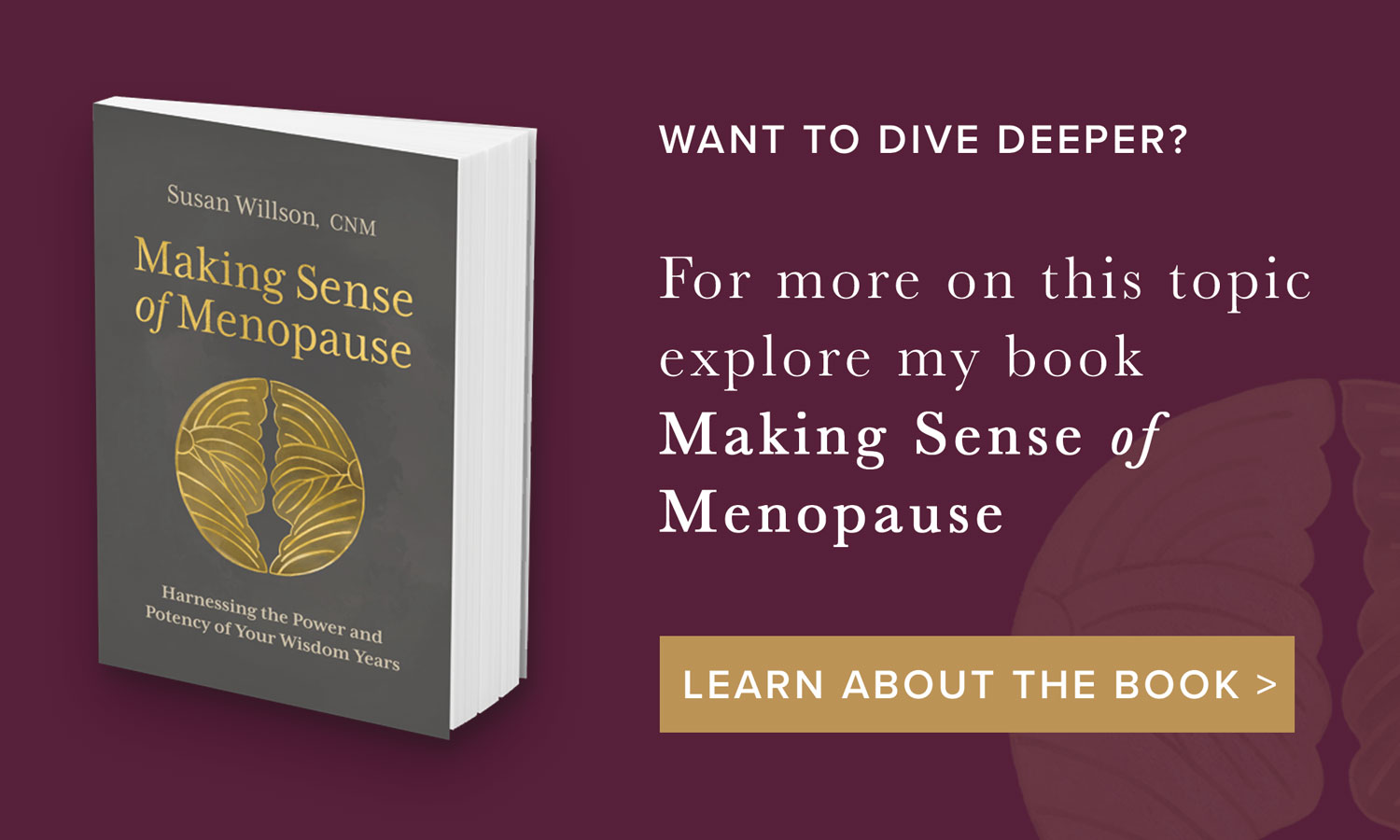When Things Fall Apart
Many women find that they go through a period of depression or anxiety during menopause. Sometimes this is a new phenomenon, sometimes a resurfacing of old patterns. There are many reasons this might happen, some physical, some emotional.
Two major physical triggers are stress and shifting hormone balance.
Stress puts the body into fight or flight and one of the 5 things that happens during that process is that blood is shunted from the brain to extremities, so that we can run faster, fight harder, or climb a higher tree to escape what threatens us. Less blood to the brain on a frequent basis, makes for feeling slow and fuzzy, similar to how we feel when depressed. We are less able to engage with the world.
The hormone imbalance that occurs in perimenopause and menopause begins with a drop in progesterone, which is a calming hormone. This can cause anxiety in some women and can easily be remedied with the use of a natural progesterone cream. The thyroid often becomes imbalanced as well. Low thyroid can come from the thyroid gland itself, from tired adrenals or from the drop in estrogen and progesterone. One of the symptoms of low thyroid is depression. Therefore, it is important, if you are experiencing depression, to have a thyroid panel drawn (free T3, free T4 and TSH), not just to depend on a TSH to tell you if things are 'normal.'
Other triggers for depression and anxiety are social/emotional ones. Going through menopause can feel isolating. Just as with early pregnancy, huge changes are happening in your body/psyche that are not 'visible' to others. You 'look' just the same, so they don't notice. Add to that the level to which we live our lives online and our true connectivity is easily lost. Strengthening our social support can be pivotal at this time.
Lastly, change is just plain hard and contemplating the future or the unknown, particularly in our current culture, carries an undercurrent of anxiety or fear for most people.
One of the most important things to remember is that this isn't forever. Most uncomfortable menopausal symptoms are temporary; they wax and wane and usually disappear within a few years if stress levels are under control. If not aware of the transitory nature of her symptoms, a woman may feel that her body is irretrievably 'broken' or that this is the “new normal,” and fall into despair. Remember, you are creating a new phase of your life. Bring in the elements you want to carry forward. Self-care might look different at this stage and may need to focus on emotional care to a greater degree than in the past.
Also remember that you have done this before. I suggest that you reflect on what your responses were during other times of major hormonal shift in your life (puberty, pregnancy). If you are like most women, there is a sense of being off-balance, not knowing who you are anymore, not knowing what this new role will ask of you or how to navigate it. Yet once the transition is made, you will find your feet and move forward to inhabit the next phase of your life.
It helps lessen anxiety to name where it comes from. Engage in the process of sifting through your experiences, coming into present time and knowing yourself, being yourself as authentically as possible. Understanding the path of our individual journey and untangling ourselves from the various roles and identities we have inhabited in our lives up to this point, goes a long way toward bringing us to a place of authenticity and thriving during menopause and beyond. This in turn lessens symptoms and anxiety and provides us with a strong place to stand in the world.
Chapter 15 in Making Sense of Menopause provides a step-by-step process to take you through this.

